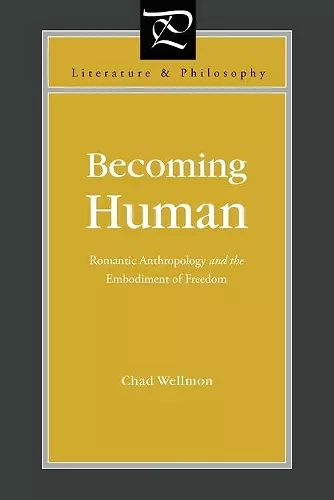Becoming Human
Romantic Anthropology and the Embodiment of Freedom
Format:Paperback
Publisher:Pennsylvania State University Press
Published:15th Jun '14
Currently unavailable, and unfortunately no date known when it will be back
This paperback is available in another edition too:
- Hardback£83.99(9780271037349)

Immanuel Kant wrote that his infamously academic, arid philosophy posed three questions: What can I know? What can I do? What can I be permitted to hope for? He then added a fourth that he claimed would subsume them all: What is the human? This last question, he suggested, could be answered by a new science of man called anthropology. In Becoming Human, Chad Wellmon recounts the emergence of anthropology around a question that had become too capacious for a single discipline and too unstable for the distinctions that had come to ground Enlightenment modernity—distinctions between nature and culture, body and mind, human and animal, European and non-European.
If, as Friedrich Schlegel wrote, we don’t even know “what the human is,” then what would a science of the human base itself on? How would it be possible and why would it even be necessary? This book is an intellectual and literary history of how these questions took form in late eighteenth-century Germany. By examining this period of anthropological discourse through the works of thinkers such as Kant, Novalis, Schleiermacher, Wilhelm von Humboldt, and Goethe, Wellmon argues that the crisis of a late eighteenth-century anthropology marks the emergence of a modernity that sees itself as condemned to draw its norms and very self-understanding from itself. Modernity became fully modern when it became fully reflexive—that is, sensitive to the paradoxical and possibly futile nature of the modern project.
“In Becoming Human, Chad Wellmon accomplishes three significant feats: he provides a genealogy of the conceptual crisis that still haunts cultural anthropology, demonstrates the complexities of the ‘Enlightenment project’ that developed a richer notion of humanity than post-Enlightenment caricatures of the autonomous cogito suggest, and puts those complexities to work in a redefinition of modernity with a critical potential that can address contemporary issues.”
—John H. Smith, University of California, Irvine
ISBN: 9780271048529
Dimensions: 229mm x 152mm x 24mm
Weight: 499g
336 pages